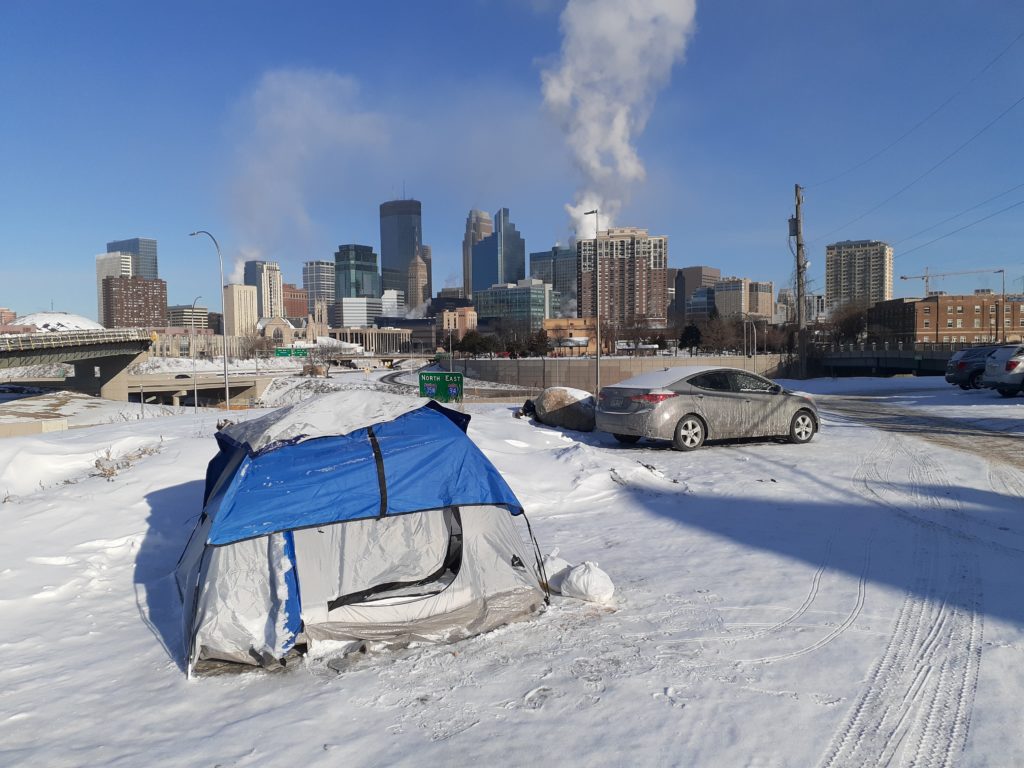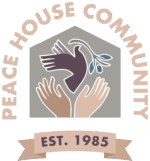I’m writing this on February 5, during the first really cold spell we have had this winter. Yesterday was not a shining moment in my career of serving the homeless. One of our community members who has serious physical handicaps mentioned in passing that he needed to get his tent and belongings from another part of town because his life was in danger. I commute to work by bike so I wasn’t able to help him, but his comment about being in danger didn’t register with me and I didn’t look for other resources for him. When I arrived at work this morning a garbage hauler was standing over a collapsed tent in the vacant lot behind the Peace House Community building. As I rode past I recognized the wheelchair sitting next to the tent and realized that the community member was probably in the tent. Worse, because the temperature had dropped below zero during the night, I knew there was a real chance that he had frozen to death during the night. Fortunately he was alive, although he was understandably traumatized by his situation. I brought him into the PHC building and immediately started making phone calls to ensure he would not have to spend any more nights outside when the low temperatures (and most of the highs) are forecast to be below zero for the next week and a half.

I desperately want to describe in more detail the community member’s physical condition, or the fear he felt for his life, or the betrayal he felt from his street friends who abandoned him when he needed them most. They could not even be bothered to help him set up his tent. I want to do this to impress on my mind and yours the need to change the way our society treats its members who can’t function “properly” or who aren’t economically viable. Tragically, I can’t, first because I can’t find the words suitable for such a graphic task and second, because the community member is already intensely vulnerable to the elements and to predators in the homeless community. Broadcasting the specifics of his condition and his vulnerability would simply victimize him more.
I want to be a voice for those who can’t speak for themselves, but then I run into my own limitations, like when someone saying “I’m scared for my life” doesn’t affect me. I did what I could for the community member. I listened as he cried and tried to make sense of his friends being willing to let him freeze, but I found no words that could comfort him if they didn’t come with a safe place to sleep. I tried to access the social service system for him, but all I did was get him on a shelter waiting list that already had over 100 names. This is the system that pays me and thousands of other workers a comfortable salary, but couldn’t find shelter for someone who would almost certainly be dead by the time you read this because of its failings.
I will not tell you how this episode ends, because this is just one example of a tragedy that happens countless times every day in this city, let alone across the county. Until society can straighten itself out, there is no end for those on the streets.
by Marti Maltby, Director Peace House Community – A Place to Belong
This article originally appeared in “The Alley,” the newspaper for the Phillips neighborhood of Minneapolis.
